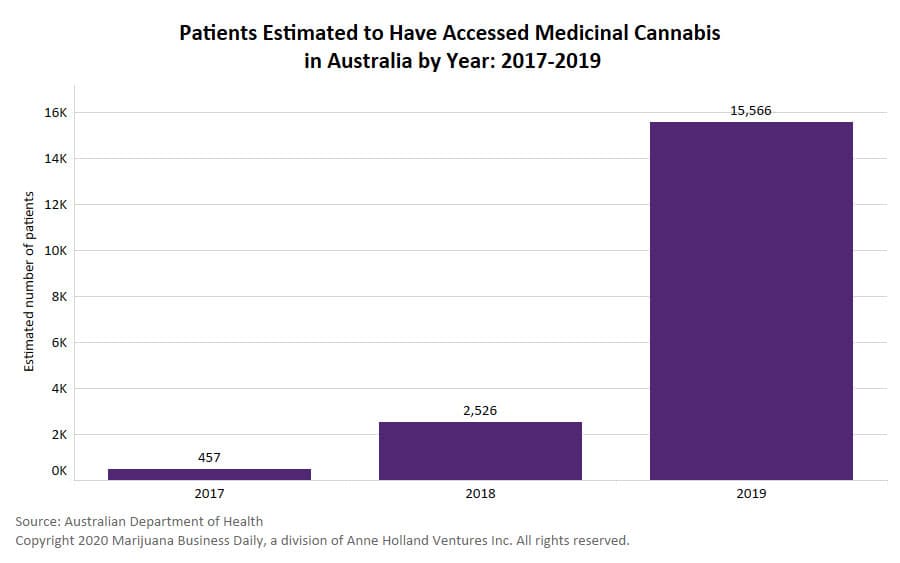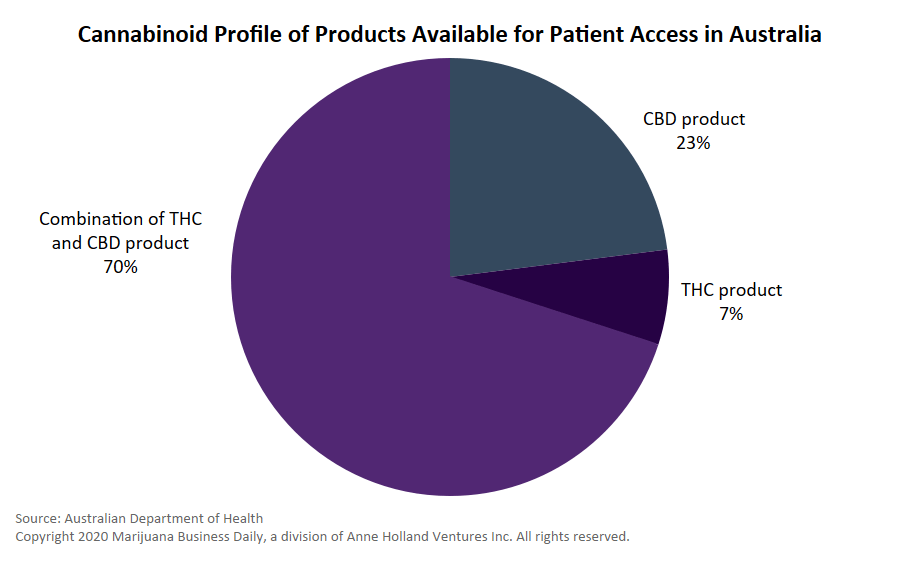(This story has been amended to reflect an extension granted for the Senate’s report on medical cannabis access.)
The amount of medical cannabis flower Australian companies are authorized to produce exceeds current and anticipated future domestic demand, federal health authorities said in a document, adding that any “depiction of the situation as a shortage is not accurate.”
But industry officials beg to differ, saying demand is still largely met by international companies.
Australian license holders are collectively authorized to produce more than 35,000 kilograms (77,000 pounds) of medicinal cannabis in dry-flower form annually, the Department of Health wrote in a public submission to a Senate committee studying patient access to the drug.
“This is estimated to be well in excess of current and anticipated future domestic demand,” the health agency noted in the submission.
The committee plans to issue its findings by March 26, a month later than originally planned.
Industry disagrees
Already, industry officials are questioning the ministry’s assertion of market equilibrium.
In a statement to Marijuana Business Daily, industry group Medicinal Cannabis Industry Australia (MCIA) estimated that at least 95% of current prescriptions and approvals for medical cannabis are being supplied by imported products.
The health department, for its part, estimates about 10% of prescriptions involved locally cultivated and manufactured products in 2019, the first year federal license holders started local shipments.
The remaining demand was met by international companies, mostly from Canada.
“While the Department of Health itself estimates that about 10% of medicinal cannabis is Australian made, the inference that Australia has enough licensed producers to satisfy domestic demand does not correlate with industry experience and final production estimates,” the MCIA noted in its statement.
Peter Crock, chair of the organization, said systemic improvements are needed to improve patient access and to assist businesses setting up to supply products through the Australian system.
Australia saw roughly 30,000 medical cannabis approvals for patients in 2019, and health authorities expect that number to climb to at least 70,000 in 2020 at the current rate of growth.
“The figure quoted by the TGA (Therapeutic Goods Administration) regarding the amount of cannabis that is licensed and permitted to be cultivated does not reflect the actual amount of medicinal cannabis that is available currently for doctors to prescribe to Australian patients,” according to the MCIA statement.
The MCIA said the TGA grants licenses and permits for research and development on cultivation, clinical trials or extraction, batch testing and other product development required to meet TGA guidelines.
“Therefore, the assumption that what is currently permitted to be produced is what will be available for patients is not correct.”
22 months
The health department estimates the entire process – from licensing, construction, production, manufacture and sale of a prescription medicine product – takes about 22 months, a time frame the agency called “remarkable.”
Australian cultivators have “very significant” production and manufacturing capacity coming online this year, according to the health department’s report.
Of the 92 licenses issued as of Dec. 31, 2019:
- 31 are for cultivation.
- 20 are for cultivation for research.
- 41 are for the manufacture of medicinal cannabis products.
Another eight licenses were not in effect as of that date.
All public submissions to the Senate inquiry can be viewed here.
The health department submission is available here.
Matt Lamers is Marijuana Business Daily’s international editor, based near Toronto. He can be reached at mattl@mjbizdaily.com.







